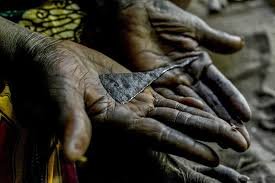
ABUJA, Nigeria – A Lagos-based researcher on female genital mutilation (FGM), Friday Anyebe, has expressed concern over what he described as the persistently high rate of circumcision of young girls in Nigeria, calling it a serious public health and human rights crisis.
Nigeria is believed to have the highest number of women and girls living with the consequences of FGM globally due to its large population, contributing significantly to the estimated 115 to 130 million survivors worldwide.
In findings released on Saturday, Anyebe said that 41 per cent of Nigerian women and girls have undergone some form of FGM — a figure he described as alarming and deeply troubling.
He noted that despite decades of advocacy, the practice remains widespread in parts of the Southwest, South-South, Southeast, and certain Northern communities, where it is often justified by tradition, cultural rites, or attempts to control female sexuality.
“FGM has caused deaths, severe infections, psychological trauma, infertility, and lifelong complications for many girls and women,” Anyebe stated.
“The pressure to conform to cultural expectations has forced some families to relocate or even seek refuge to protect their daughters.”
He also stressed that Nigeria currently has no federal law explicitly banning FGM, though some states, including Ekiti, Oyo, Osun and Ebonyi, have enacted local prohibitions.
International bodies such as the World Health Organisation (WHO), United Nations (UN), UNICEF, the African Union (AU) and women’s rights organisations continue to work to eradicate the practice through awareness campaigns, community engagement, and survivor advocacy.
Anyebe urged Nigerian policymakers, traditional leaders, and religious institutions to prioritise protection of girls, saying:
“Ending FGM requires collective action, cultural dialogue, and legal enforcement. No tradition should come at the cost of a girl’s life.”




